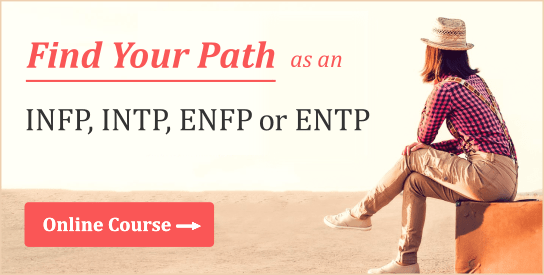
The last couple centuries have borne witness to an incredible rise in individualism. Gone are the days when one’s identity was predetermined by the family, class, religion, and culture into which was one born. In today’s world, seemingly nothing is set in stone. Chances are, if you are born in a Western nation, little about your life story will be pre-written. Whether we like or not, modernity’s genre of choice is “choose your own adventure.”
While choosing your own adventure—your own personal path and identity—may in theory seem like an exhilarating prospect, in reality it can feel overwhelming, a task of monumental proportions. Analysis suggests that there at least three aspects of clarifying your path / identity:
Clarifying Your Path / Identity
Task 1.
To understand your current / historical self (e.g., strengths, interests, personality).
Task 2.
To understand the outside world and clarify your worldview.
Task 3.
To envision your ideal self / life / purpose in light of Tasks 1 and 2.
Of course, the degree to which any of these things must be addressed is a matter of personal preference. Indeed, there are still plenty of individuals who, despite their immersion in an individualistic culture, aren’t fully acquainted or concerned with the issue of choosing their own path. For such individuals, adopting the beliefs and expectations of their family, for instance, may serve to constrain the number of potential life paths they will consider.
The Role of Personality Type
From a personality perspective, we would expect sensing (S) types and judging (J) types to spend less time rehashing the hypothetical options for their lives. It appears that NP types, marked by an affinity for exploring myriad possibilities and keeping their options open, are inclined to invest the most time wrestling with their identity and purpose, which is why we developed a special online course, Finding Your Path as INFP, INTP, ENFP or ENTP, to help them better navigate this process.
We might also predict that extraverts, in directing their attention outwardly, will expend more energy tackling Task 2, whereas introverts, being naturally inclined to turn their sights within, will spend more time engrossed in Task 1.
With that said, we also know that intuitive (N) types typically prefer to interpret everything in light of their understanding of the whole. Thus, even introverted Ns may consider it necessary to understand the world at large before drawing firm conclusions about who they are as individuals. Similarly, EN types may draw on accumulated self-knowledge in their attempts to comprehend the outside world. The N penchant for constantly acquiring more information is one reason these types can feel overwhelmed or discouraged in trying to reach closure about important life decisions.
Kierkegaard’s Approach
The Danish philosopher and existentialist Soren Kierkegaard, likely an INFP or INTP, put forth some thought-provoking ideas that tie into our discussion. First, Kierkegaard is well known for advocating the necessity of taking a “leap of faith.” Believing that nothing could be known with certainty, he saw faith—an act of decision or a “resolution of the will”—as the only means of halting reflection and establishing a solid foundation for one’s life.
To my knowledge, Kierkegaard never devoted much time to explaining how one goes about making such a decision, presumably because he didn’t see it as something that could be explained or deduced logically. To some extent, he seemed to believe that the act of making a decision was more important than its particular content. While taking a leap for its own sake may seem a bit risky or foolhardy, one can imagine how Kierkegaard, as an NP type, may have feared that failing to pick some sort of path for his life might leave him forever lost at sea.
Kierkegaard also made the case that understanding the outside world (Task 2) was largely unnecessary with respect to forging a meaningful and purposeful life. One of his central dichotomies was that of objectivity (outer / self-divested knowledge) versus subjectivity (inner understanding / experience). As one of history’s greatest champions of subjectivity, he argued that, when it comes to cultivating a passionate existence, it is the subjective realm that matters most. His work on subjectivity anticipated the notion of “following one’s bliss,” which has become a central tenet among modern individualists.
Life Experiments
For those who might be feeling overwhelmed by the weight and enormity of finding your life path, Kierkegaard’s admonishment regarding the potential value of taking a leap of faith, even apart from perfect knowledge or certainty, may offer some relief. You may even want to frame it as an experiment to remind you that a change of course is always available if things go awry. What’s great about experiments, or what we might call life experiments, is they provide a lot of concrete feedback about how well a particular role or action is working for you. Moreover, because an experiment requires some measure of committed action, it can engender a certain satisfaction that mere contemplation may fail to furnish.
One of my big leaps occurred in 2009, when I opted to start Personality Junkie. Although I had been independently studying personality for over a decade, I still wasn’t sure that my ultimate purpose was to write about personality types, let alone focus on the Jungian / Myers-Briggs taxonomy. Despite these uncertainties, I knew that personality type could serve as a valuable tool for facilitating, among other things, self-understanding and identify clarification. Fortunately, I decided that it was an experiment worth running, and the rest is history.
Closing Remarks
Modern life offers us tremendous freedom for choosing our own path. However, as suggested by Barry Schwartz’s “paradox of choice” notion, boundless freedom or unlimited options can sometimes feel like more of a curse than a blessing. Certain personality types, such as NPs, may find it particularly challenging to clarify who they are and what they want out of life.
In some cases, accumulating more information or life experience may naturally lead to a satisfying solution. At other times, however, it may be necessary to take a different approach or a leap of faith in order to shake things up and reveal new insights. Or, maybe the time is right to start that experiment you’ve been thinking about? Finally, if you happen to be an INFP, INTP, ENFP or ENTP, you may want to explore our new online course, specially designed to help you find your path as an NP type:
Related Posts:
The Introvert’s Dilemma: Personality, Identity & Vocation

J. says
I wish when I was young I had internet and found this course :-)
Claudia P says
Hi, AJ,
INFP here! I do appreciate you taking that leap in 2009! I find your insights, and how you express them, to be most comprehensive, helpful, creative and thought provoking!
A.J. Drenth says
Thanks so much Claudia. I’m grateful that you enjoy our work.